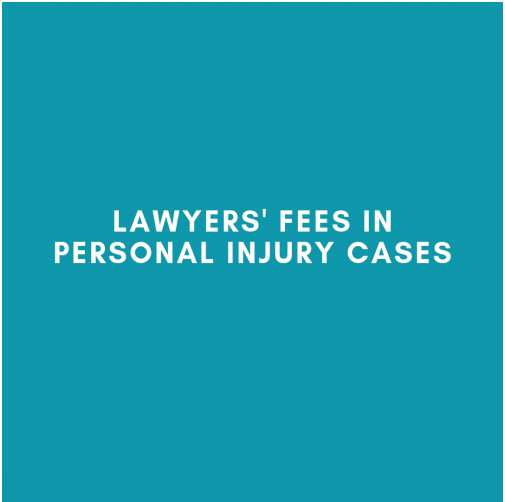
How to Deal with Medicare Liens in Personal Injury Cases
Each attorney on either side of a personal injury case is interested in settling their client’s case so that the client can receive compensation for their injuries. If the plaintiff gets only a small portion of the settlement offered, then the plaintiff is not likely to accept the offer. Often, the settlement offer is fair, but the circumstances are such that a fair offer seems unfair to the plaintiff and no settlement takes place. The attorney who can best manage and reduce the money that needs to be paid out from their clients’ funds to sources other than the client is usually a skilled and successful attorney. For counsel to effectuate a full, final and complete conclusion to a plaintiff’s personal injury claim, it is important to ensure that all enforceable liens are extinguished. Personal injury liens may be held by both federal and state government agencies as well as private entities that provide medical care and benefits. These third-party claims have the ability to affect any judgment or settlement in which a plaintiff was provided medical treatment. Because penalties and liabilities can attach to both plaintiffs and defendants if these liens are not satisfied, it is important to analyze the plaintiff’s medical treatment to determine if there are any third-party claims to a judgment or settlement. Accordingly, this evaluation should be a part of every attorney’s personal injury litigation checklist.
Federal Government Liens
Congress has enacted several statutes and regulations that provide medical care benefits to those who might not otherwise be able to obtain them. In providing these benefits, Congress has also empowered various governmental agencies to pursue recoupment of these benefits through liens and subrogation rights when the need for medical benefits is caused by a third party who is legally liable to the medical care recipient. Some of the most commonly encountered recoupment efforts of the federal government are found in the context of personal injury claims regarding repayment of Medicare and Medicaid benefits.
Medicare
The Medicare program was established in 1965 and provides primary hospital insurance benefits. Part B provides supplementary medical insurance for physician’s fees and other services outside a hospital setting. The Act was created to provide the same type of health care as could be provided by a comprehensive insurance plan by a private entity. The specific purpose was to provide a coordinated and comprehensive approach to federal health insurance and medical care for the aged and disabled. When a person receives medical benefits under either Part A or Part B, the federal government is subrogated to any right a Medicare recipient has to payment for such item or service under a group health plan, workers’ compensation law, plan of the United States or a state, an automobile policy, a liability policy or plan (including a self-insured plan), or under no-fault insurance.
Medicare has a right to subrogation from any individual or entity, including a physician or attorney. Medicare is also provided a direct right of action to recover from any entity responsible for making primary payment for services received by the Medicare recipient. Recovery of either a settlement or judgment by a Medicare recipient is characterized as a “third party payment.” Upon learning that Medicare paid a claim for which the third party payer has or should have paid, the third party payer must provide notice to Medicare. The Medicare recipient must reimburse Medicare within sixty (60) days if he receives a third-party payment. If the beneficiary fails to reimburse Medicare, the party who made the payment to the recipient is liable for the reimbursement of Medicare even though it has already paid the recipient or other party. This statute also provides for a monetary penalty against those who fail to satisfy a Medicare lien. In addition, a cause of action exists for the federal government to recover double the amount of paid Medicare benefits from entities which include liability insurance companies, self-insured plans, and the Medicare beneficiary. Thus, it is important to discover whether Medicare has paid any benefits early in a claim or lawsuit. By statute, Medicare has an independent cause of action against a third party tortfeasor, not merely an interest that is subrogated to an injured party’s claim. Additionally, the Medicare Act provides for federal preemption of state laws to ensure that the United States will recover all monies it claims under its lien.
Reduction and Waiver of a Medicare Lien
Although Medicare’s recovery is protected by statute, in several instances a reduction or waiver of this recovery may be obtained. A reduction of the Medicare lien may be obtained by claiming attorneys’ fees and expenses related to the recovery of the funds to be received by the recipient. If the Medicare lien is less than the amount of the settlement or judgment obtained, the reduction for attorneys’ fees and expenses is equal to the ratio of the attorneys’ fees and expenses to the total recovery. In the event that Medicare’s interest equals or exceeds the amount of the settlement or judgment, Medicare will recover the full amount of the Medicare lien less the attorneys’ fees and expenses incurred. Federal regulations govern the implementation of lien reductions. The amount tendered by the Medicare recipient to compromise the Medicare lien must bear a reasonable relationship to the amount that could be recovered by an enforced collection proceeding after considering the exemptions available to the debtor and the amount of time that collection will require.
Although Medicare generally will not reduce or waive its lien beyond attorneys’ fees and costs as discussed above, the federal government has authority to reduce or waive its Medicare lien if it is in the best interests of the program. The lien may also be waived or reduced if either “the probability of recovery, or the amount of recovery do not warrant pursuit of the lien. To this end, requests for waiver and reductions are evaluated to determine if the waiver or reduction is in the best interests of the program. If a Medicare lien does not exceed $100,000.00, excluding interest, penalties, and administrative costs, Medicare officials may exercise compromise authority within parameters discussed below. If the Medicare lien exceeds $100,000.00, the Department of Justice will decide if the lien will be reduced or waived. The recommendation on whether to compromise a claim is generally based on the inability of the recipient to pay the full amount within a reasonable time and the inability of the government to collect within a reasonable time if the recipient refuses to pay. In evaluating a recipient’s inability to pay, Medicare considers the recipient’s age and health, present and potential income, inheritance prospects, whether he or she has concealed or improperly transferred assets, and whether assets or income are available that could be realized by enforced collection proceedings.
Contact us Today!
If you or a loved one were injured in any type of accident, you may have a legal right to recover significant compensation for your injuries and losses. The Law Offices of Suarez & Montero Car Accident Lawyers represents accident victims injured in various types of accidents. Our skillful attorneys are genuinely committed to our clients. We will fight to make sure that you get the maximum amount of compensation owed to you. Let us help you get the medical care you need and fight to make sure you are compensated for your injuries! Our attorneys are ready to provide proven legal representation in pursuing your claim and stand ready to protect your rights. We are available 24/7 to give you a free, no risk case consultation.
We serve clients throughout Florida including those in the following areas:
Miami-Dade: Aventura, Coral Gables, Doral, Fontainebleau, Hialeah, Homestead, Kendall, Miami, Miami Beach, Miami Lakes, North Miami, Tamiami, and Westchester.
Broward: Fort Lauderdale, Hallandale Beach, Hollywood, Pembroke Pines, and Weston; and Palm Beach County including Boca Raton, Lake Worth, and West Palm Beach.





